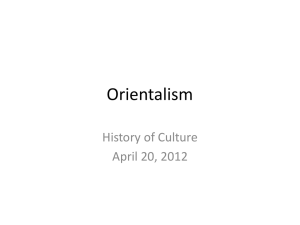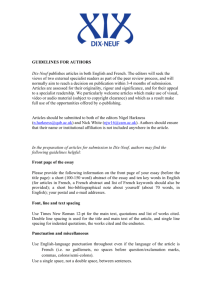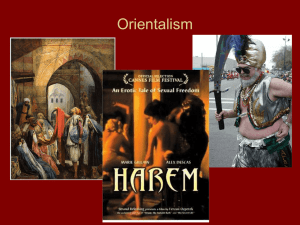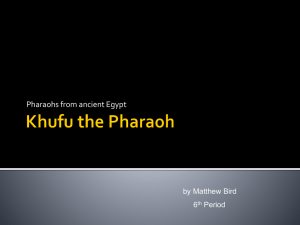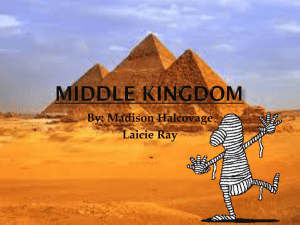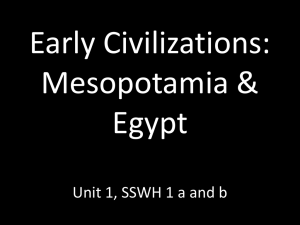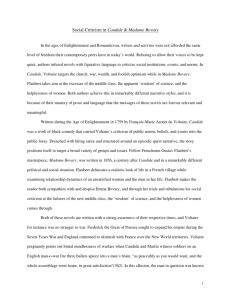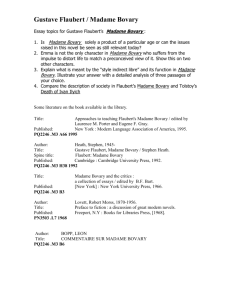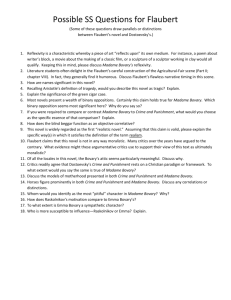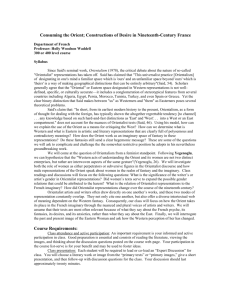Flaubert in Egypt
advertisement
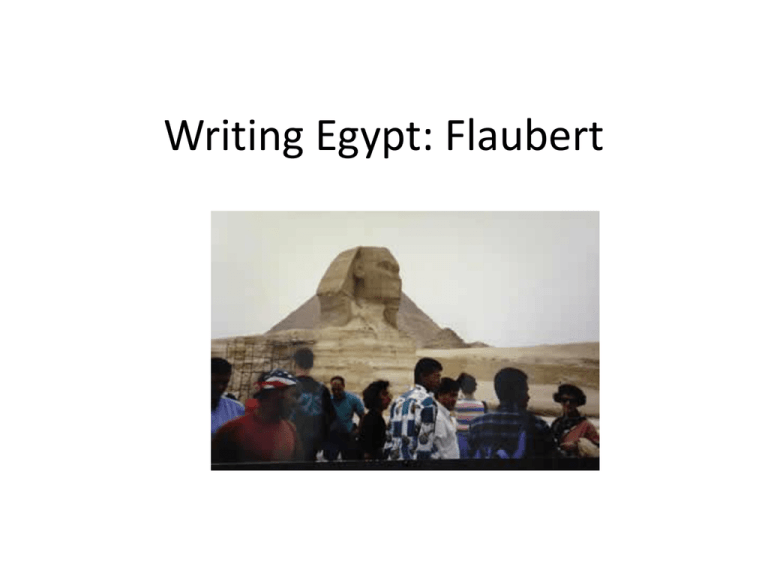
Writing Egypt: Flaubert Tourism as Livelihood • Usually the country’s third largest industry • Note that even the Greeks traveled to Egypt as tourists Flaubert in Egypt • Letters (mostly to Mom) and notes translated and edited by Francis Steegmuller in 1972 • Travels with journalist/photographer Maxime du Camp in fall of 1849 (du Camp records his observations but much later) • Doesn’t plan on writing a travel book because travel should only be used to “enliven one’s style” (8) Influences • Had always longed for the exotic; heavily influenced by Victor Hugo’s Les Orientales (Greeks vs. Turks) and The Arabian Nights. • Longed to have sunshine rather than the clouds of Rouen. • Loves antiquity, has studied Greek and Latin • Du Camp convinces Madame Flaubert to let her son go along and funds him First Impressions • “I had my first sight of the Orient through, or rather in, a flowing light that was melted silver on the sea.” (28) • After he landed, he “gulped down a whole bellyful of colors…” • Did his travel diaries lead him towards the Realism he created in Madame Bovary? (48) Making Use of their Time • Instead of being “idle tourists,” they hire an Arab for four hours a day so that they can ask him questions about birth, marriage, Mecca, etc. (61) • For the evenings, they hire a storyteller and an effendi (72) Overwhelming Impressions • “You ask me whether the Orient is up to what I imagined it to be. Yes, it is; and more than that, it extends far beyond the narrow idea I had of it.” (75) • Letter to Dr. Jules Cloquet: “What can I write you? As yet I am scarcely over the initial bedazzlement. It is like being hurled while still asleep into the midst of a Beethoven symphony, with the brasses rumbling…. Cont’d • ..and the flutes sighing away; each detail reaches out to grip you; it pinches you’ and the more you concentrate on it the less you grasp the whole.” (79) • Everything is reversed: “In Europe we picture the Arab as very serious. Here he is very merry, very artistic in gesticulation and ornamentation. Circumcisions and marriages seem to be nothing but pretexts for rejoicing and music-making…” 80 Lots of Women • At that time, all the “dancing girls” had been ordered out of Cairo and were found in Kena, Esna, and Assuan. The most famous” Kuchuk Hanem, at Esna. • When she entertains Flaubert, he “feels like a tiger.” She fuels his imagination endlessly. • “How flattering it would be to one’s pride if at the moment of leaving you were sure that .. . • .. That she would think of you more than of the others who have been there, that you would remain in her heart!” (119) • When they go on the Nile, “we live in the grossest idleness, stretched out all day on our divans watching everything that goes by” (126) After Effect • “Passing Abydos, I thought of Byron. That is his Orient, the Turkish Orient, the Orient of the curved sword, the Albanian costume, and the grilled window looking on the blue sea. I prefer the baked Orient of the deouin and the desert. . . Why have I a melancholy desire to return to Egypt, to sail back up the Nile and see Kuchuk Hanem? No matter; the night I spent with her is the kind one doesn’t have very often, and I enjoyed it to the full…” (214) Final Thoughts from Flaubert • “Traveling makes one modest—you see what a tiny place you occupy in the world.” 220 • 30 years later, he writes his niece shortly before his death: “For the past two weeks I have been gripped by the longing to see a palm-tree standing against the blue sky, and to hear a stork clacking its beak at the top of a minaret.” 222 • As a state of mind, Egypt is with him until the end
